How Long Does It Take For The Power To Come Back On?

We don’t realize how much we depend on our electricity until there is a power outage. While electricity at one time was merely a useful convenience, the way our homes currently run, it is more of a necessity. A power outage can cause your food to spoil, leave you without a way to cook food, and it can also affect your heat or air-conditioning system. So when your power goes out, you’ll probably want to know, “How long does it take for the power to come back on?”
To determine when your power will come back on, you’ll want an idea of what caused the power outage. For a simpler problem, such as a fallen electrical pole, your power could come back on in a few hours. However, if your power outage is a result of a more serious problem, such as a natural disaster, you could be out of power for up to a week.
We’ll let you know common reasons for outages as well as how long you can expect to go without power. Also, we’ll show you the steps you can take to stay safe and comfortable when the power goes out.
What Caused the Power Outage?
To know how long it will be before your power comes back on, you’ll want to know what caused the electricity to go out. Severe damage to the power grid can leave you and your neighbors without power for days, while a tripped breaker you can usually fix yourself at your breaker box. Here are a few different types of power outages along with how long it generally takes to fix the problem.
The Tripped Breaker
Some power outages may be a result of a power surge in your own home. If your electricity is busy running a washer, dryer, refrigerator, Christmas lights, and more, a hairdryer may be the last straw that trips your breaker. Luckily, this type of power outage should be a simple fix.
To reset a tripped breaker, turn off the lights in the affected area of your home and unplug appliances. At the breaker box, flip the handle to the off position, and then you can turn it back on. Avoid putting your face near to the breaker box as it may give off sparks. Check to see if any of your appliances have overheated or have worn spots or burns on the cords. If you notice that you are having recurring problems with your breaker, you may need to call an electrician to have a look.
Animals
Interestingly, squirrels are also a common reason your home may be without power. According to the Washington Post, squirrels and other rodents are responsible for 10-20% of all power outages. This type of power outage can be fixed fairly quickly after workers pinpoint the problem area.
A Fallen Electrical Pole
A tree falling on an electrical pole may cause the power to go down. Utility workers can usually fix the problem within a few hours if the weather is favorable. However, if the line goes down in the middle of a storm, working conditions must be safe enough for a utility worker to repair the line.
Natural causes
Natural forces such as storms, hurricanes, blizzards, and tornados can wreak the most havoc on the power grid in your area. Depending on how much damage there is, it could take anywhere from 3 days to one week to fix the power.
What Can You Do in a Power Outage?
When the power goes down, you now have an idea of how long you could be without electricity. If all the lights are on at your neighbors, it is most likely an isolated incident involving your home’s electrical system. Once you get an alert that a major storm is blowing through, your will want to take precautions in time.
Be Ready
Plan ahead before disaster strikes. If you know adverse weather is on its way, put safety first and get out of any areas that are considered dangerous. However, if you must weather out a storm at home and are concerned about losing power, these are some ways you can prepare:
- Know where your flashlights are located and keep extra batteries on hand.
- Invest in a generator.
- Keep non-perishable snacks and bottled water on hand in adverse weather.
- Keep blankets at the ready.
- Fill a bathtub with water for cleaning and to flush toilets.
- Keep your cell phone charged.
Take Action
If your area is struck with a power outage, you can take control of the situation by trying the following tips:
- Call your local Transmission and Distribution Service Provider (TDSP) to report the power outage. To find out which TDSP serves your area, you can check your electricity bill for a contact number.
- Plug in a generator for backup power if you have one. Keep your generator outside, not inside your home.
- Unplug appliances until the power comes back on to protect them from power surges.
- Make sure you keep your refrigerator and freezer doors closed to keep your food cold inside. Your food should remain cold in your fridge for about 4 hours without a generator.
- Move perishable foods from your fridge to the freezer if there is room. This will help to keep food cold for a longer amount of time (up to 48 hours).
- If your home does not have adequate heat, air, or food, there may be emergency centers set up by the city, non-profits, or churches in your area where you can go for help.
Related Questions
Do phones work in a power outage?
As long as your cell phone has charge, you should be able to make calls in a power outage. However, if the cell phone tower has been affected by adverse weather, your calls may not go through. If you still have a landline, this phone should work in a power outage. Cordless phones do not work in a power outage (even if they have a full battery). This is because the handset needs electricity to connect to the base.
How many power grids are in the continental U.S.?
There are 3 grids in the continental U.S., the Eastern Grid, Western Grid, and the Texas Grid. The grids operate independently even though they interconnect. These large power grids are made up of mini-grids. The mini-grids connect through a network but often operate independently. A mini-grid supplies electricity to a localized group of customers.
Will my toilet work during a power outage?
Yes, you can use the toilet in a power outage. However, you may need to add a pitcher of water to the bowl to flush away waste.

Alex Praytor is a native Texan who got her degree in English Literature and decided to travel the globe. She finds the architecture and design of homes across cultures fascinating. In her spare time, she visits coffee shops with her family and creates projects for their own home. Alex enjoys sharing tips on how to keep repairs up to date while turning a house into a home.
More by Alex Praytor



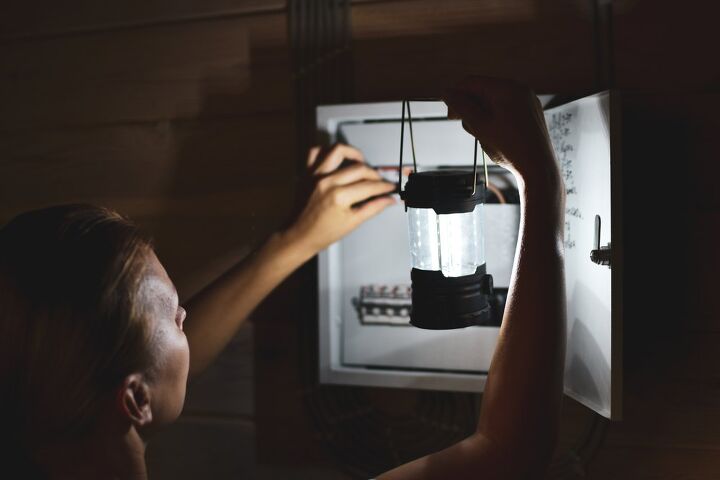






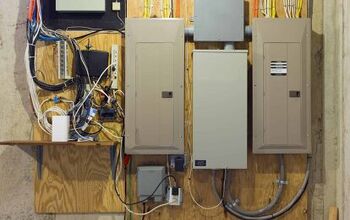





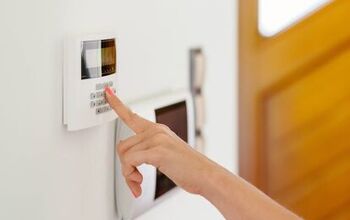







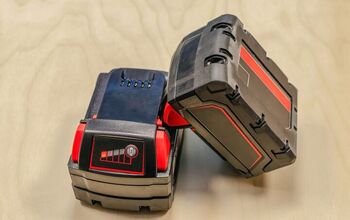
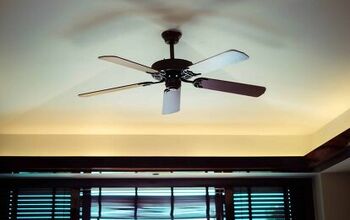

![12 Washing Machine Brands to Avoid [with Recall Data]](https://cdn-fastly.upgradedhome.com/media/2023/07/31/9075781/12-washing-machine-brands-to-avoid-with-recall-data.jpg?size=350x220)